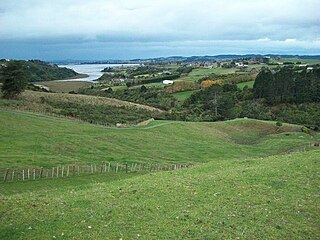
The Smoke-free Environments Amendment Act 2003 is an Act of Parliament in New Zealand that prohibits smoking in all workplaces including offices, clubs, pubs, restaurants, airports, and schools.

Smoking bans, or smoke-free laws, are public policies, including criminal laws and occupational safety and health regulations, that prohibit tobacco smoking in certain spaces. The spaces most commonly affected by smoking bans are indoor workplaces and buildings open to the public such as restaurants, bars, office buildings, schools, retail stores, hospitals, libraries, transport facilities, and government buildings, in addition to public transport vehicles such as aircraft, buses, watercraft, and trains. However, laws may also prohibit smoking in outdoor areas such as parks, beaches, pedestrian plazas, college and hospital campuses, and within a certain distance from the entrance to a building, and in some cases, private vehicles and multi-unit residences.
Action on Smoking and Health (ASH) is the name of a number of autonomous pressure groups (charities) in the anglosphere that seek to publicize the risks associated with tobacco smoking and campaign for greater restrictions on use and on cigarette and tobacco sales.
The Tobacco Products Control Act was introduced in South Africa in 1993, where smoking has been rated the second highest health concern, after HIV/AIDS.

The use of tobacco for smoking in New Zealand has been subjected to government regulation for a number of decades. On 10 December 2004, New Zealand became the third country in the world to make all indoor workplaces including bars and restaurants smoke-free. The smoking rate in New Zealand was about 8% as of 2023 when the new government planned to eliminate the nation's smoking ban to fund tax cuts.

Litter is a global issue and has a significant human impact on the environment. Litter is especially hazardous because it can enter ecosystems and harm a country's biodiversity. Litter is a prevalent environmental issue in New Zealand.

Tobacco control is a field of international public health science, policy and practice dedicated to addressing tobacco use and thereby reducing the morbidity and mortality it causes. Since most cigarettes and cigars and hookahs contain/use tobacco, tobacco control also concerns these. E-cigarettes do not contain tobacco itself, but (often) do contain nicotine. Tobacco control is a priority area for the World Health Organization (WHO), through the Framework Convention on Tobacco Control. References to a tobacco control movement may have either positive or negative connotations, depending upon the commentator.

The Smokefree Environments and Regulated Products Act 1990 is an Act of Parliament in New Zealand. The Act placed smoking restrictions on indoor spaces, banned smoking on public transport and established the Health Sponsorship Council. The bill was introduced by Helen Clark, then Minister of Health and later Prime Minister. Clark would later refer to the law as "one of my proudest achievements as a politician". It was amended by the Smoke-free Environments Amendment Act 2003, which completely eliminated smoking in workspaces, by the Smokefree Environments and Regulated Products (Vaping) Amendment Act 2020, which renamed the Act and brought it "up to date", and by the Smokefree Environments and Regulated Products Amendment Act 2022.
Tobacco usage in sport is a well documented and publicised occurrence. Tobacco advertising has connected itself to sports both for the connotations of health that sports provide, as well as the marketing potential of famous athletes. Additionally, tobacco has played a role in the sport of baseball specifically and has affected both the rules affecting players and fan alike. Agencies such as the CDC have used sports as platforms for tobacco prevention programs, specifically targeted at younger people.
Smoking in Tokelau is prevalent, with ethnic Tokelauans having the highest smoking prevalence of all Pacific ethnicities. In the 2011 Tokelau Census, 47.8% of people aged over 15 were found to be regular cigarette smokers.
Every child has the right to adequate nutrition under the Universal Declaration of Human Rights. In New Zealand, an estimated 100,000 New Zealand children go to school every day without breakfast. Article 11 of the International Covenant on Economic, Social and Cultural Rights recognises 'the fundamental right for everyone to be free from hunger’.
The Tobacco Products Directive (TPD) or European Tobacco Products Directive (EUTPD) (2014/40/EU) is a directive of the European Union which places limits on the sale and merchandising of tobacco and tobacco related products in the EU. The TPD aims to improve the functioning of the internal market for tobacco and related products, while ensuring a high level of health protection for European citizens. Based on the proposal of the European Commission the Directive entered into force on 19 May 2014 and became applicable in the EU Member States on 20 May 2016.
The Smokefree Coalition was established as a national organisation in New Zealand in 1995 to advocate for tobacco control interventions by government and non-government organisations (NGOs). Its founding organisations were the National Heart Foundation of New Zealand, the Cancer Society of New Zealand, Action on Smoking and Health, Te Hotu Manawa Māori and the Asthma and Respiratory Foundation of New Zealand. It ceased operation on 30 June 2016.
Benson & Hedges Fashion Design Awards was a New Zealand fashion competition that ran from 1964 to 1998. It was the country's major competitive fashion event during this period. The Awards' open entry format offered an opportunity for new fashion designers and manufacturers to showcase their work on a national platform. Prominent New Zealand fashion designers showcased their works at this event including Annie Bonza, Trish Gregory, Denise L'Estrange-Corbet and Isabelle Harris.

As nicotine is highly addictive, marketing nicotine-containing products is regulated in most jurisdictions. Regulations include bans and regulation of certain types of advertising, and requirements for counter-advertising of facts generally not included in ads. Regulation is circumvented using less-regulated media, such as Facebook, less-regulated nicotine delivery products, such as e-cigarettes, and less-regulated ad types, such as industry ads which claim to discourage nicotine addiction but seem, according to independent studies, to promote teen nicotine use.

Janet Anne Hoek is a New Zealand academic, she was promoted to full professor at Massey University in 2003 and was appointed full professor at the University of Otago.

Ayesha Jennifer Verrall is a New Zealand politician, infectious-diseases physician, and researcher with expertise in tuberculosis and international health. She is a Labour Party Member of the New Zealand Parliament and a Cabinet Minister with the roles of Minister of Health and Minister for Research, Science and Innovation. She has worked as a senior lecturer at the University of Otago, Wellington and as a member of the Capital and Coast District Health Board. During the COVID-19 pandemic she provided the Ministry of Health with an independent review and recommendations for its contact-tracing approach to COVID-19 cases.

The Smokefree Environments and Regulated Products Amendment Act 2022 is an act of the New Zealand Parliament that seeks to combat smoking by limiting the number of retailers allowed to sell smoked tobacco products; ban the sale of smoked tobacco products to anyone born on or after 1 January 2009; and to discourage the consumption of smoked tobacco products. The bill passed its third reading on 13 December 2022 and received royal assent on 16 December 2022. The new National-led coalition government announced in late November 2023 that they intended to repeal the legislation. The Smokefree legislation was repealed under urgency on 28 February 2024.

Cassandra Jane "Casey" Costello is a right-wing New Zealand politician, lobbyist and former police officer. She was elected to the New Zealand House of Representatives, representing the New Zealand First party, in the 2023 New Zealand general election. She was appointed Minister of Customs, Minister for Seniors and Associate Minister of Health in the Sixth National Government of New Zealand.

Vanessa Joan Weenink is a New Zealand politician. She was elected as a Member of the New Zealand House of Representatives for Banks Peninsula, representing the National Party, in the 2023 New Zealand general election. She is a doctor by training.








